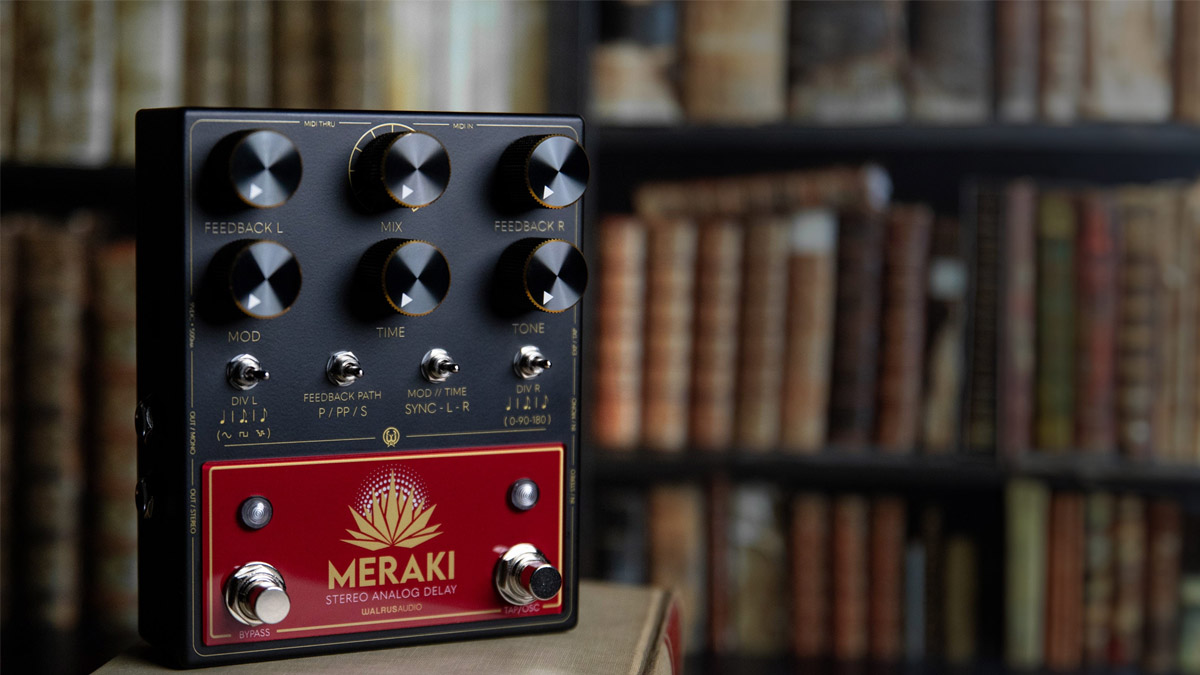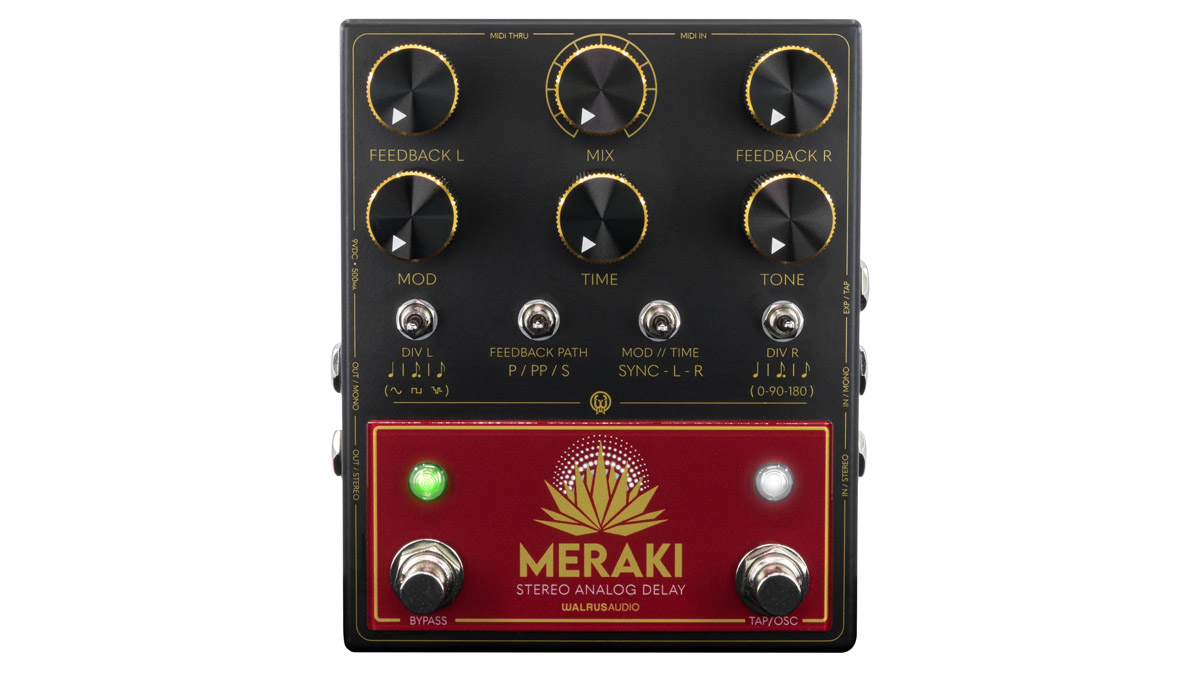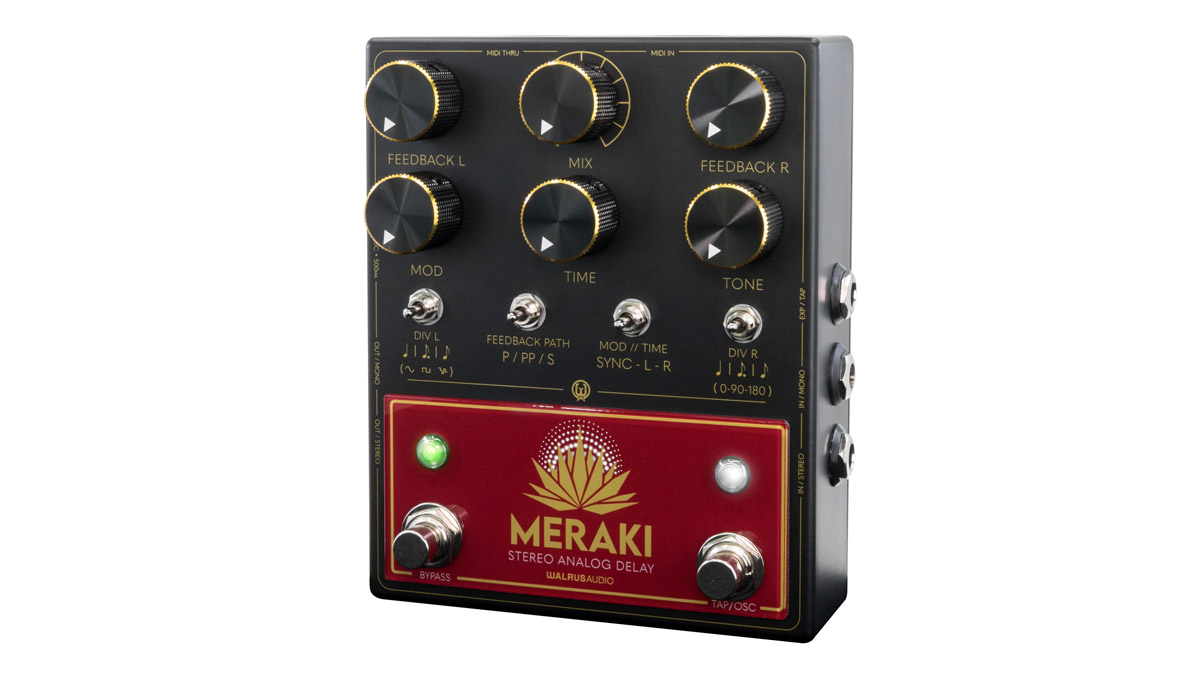NAMM 2024: “Cozy up and immerse yourself in true stereo analogue delay” – Walrus Audio adds its feature-packed, MN3005-loaded Meraki delay pedal to regular lineup
The Black Friday special is now always on the menu, but owing to its more complicated build, it will be made in small batches of approximately 100 units at a time

Want all the hottest music and gear news, reviews, deals, features and more, direct to your inbox? Sign up here.
You are now subscribed
Your newsletter sign-up was successful
NAMM 2024: Here is some big news for players who are looking for more from their analogue delay pedal – the Oklahoma-based guitar effects pedal specialist Walrus Audio has added the Meraki to its regular line-up.
It is the sort of news you don’t really expect. The Meraki Stereo Analog Delay was originally a Black Friday special, the kind of pedal that a brand puts together just to show what it can do, namely packing eight MN3005 bucket brigade chips into a sophisticated circuit that offered players up to 1200ms of delay. And said delay could be described using whatever complimentary adjective you care to mention; warm, rich, textured, musical, and so on.
Furthermore, the Meraki presents these old-school delay sounds in a user-friendly and package, offering parallel, ping-pong and series delay modes, modulation, MIDI control, and the choice of quarter note, dotted eighth, and eighth note repeats.
As the name suggests the Meraki offers full stereo operation, which means you can customise each channel and create jarring clashes of repeats, or synch them up, have one channel thickened with some modulation the other dry. There is no shortage of options with this one.
The Meraki is a dual-footswitch pedal with on for engaging or bypassing the effect, the other for tap tempo or for ramping up repeats, with the capacity to place the pedal in full self-oscillating mode, which of course is one of the great joys in messing around with analogue delay in the first place. With this you can sound like Radiohead from the comfort of your bedroom. Though at this price, with these features, you’re going to want to use this in as many settings as possible.


Priced at $599, there is not question this is a high-end delay unit, positioned to rival the likes of the truly superlative Boss DM-101 Delay Machine. There are other options for casual repeats and adding a bit of space and depth to your electric guitar tone.
But heavy users of delay, and those running a stereo rig are sure to get a lot of mileage out of it, hence why Walrus Audio is going to the extra effort to make this a regular. Even so, they will only be able to make it in batches of 100 units or so at a time.
Want all the hottest music and gear news, reviews, deals, features and more, direct to your inbox? Sign up here.
The Meraki has Feedback controls for both stereo channels The Tone control applies a tilt EQ to your repeats to lighten or darken to taste. There is a Modulation knob dialing in some chorus/vibrato on your repeats, and a Time control, with the Meraki’s range rated between 80 and 1200ms. The Mix controls the balance of wet/dry.
Each channel has its own toggle selector switch for tap divisions, and there are switches for feedback mode and for synching the channels.
You can run the Meraki as buffered or true bypass. There’s a five-pin MIDI port for digitally controlling parameters, and a 1/4” connection for hooking up an external tap switch or expression pedal.
The Meraki Stereo Analog Delay is available now, priced $599. For more details head over to Walrus Audio.
Jonathan Horsley has been writing about guitars and guitar culture since 2005, playing them since 1990, and regularly contributes to MusicRadar, Total Guitar and Guitar World. He uses Jazz III nylon picks, 10s during the week, 9s at the weekend, and shamefully still struggles with rhythm figure one of Van Halen’s Panama.
